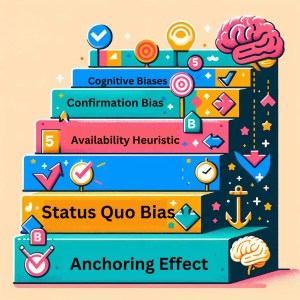Introduction to the Benefits of Playing Chess
In the intricate dance of black and white, the ancient game of chess is not just a battle of wits on the board but also a powerful catalyst for mental health and cognitive prowess. This article delves into the fascinating world of chess, unraveling its profound benefits on mental health, cognitive ability, and its potential in reducing the likelihood of Alzheimer’s and dementia.
As we delve into the mental majesty of chess, visit our Fun Zone to experience firsthand the cognitive benefits of this timeless game. To learn even more about how to play and even Play Chess for free click here!

A Mental Gymnasium for the Brain
At the heart of chess lies a rich tapestry of strategic depth and complexity, offering a rigorous workout for the brain. Harvard researchers have highlighted chess as a unique cognitive survey, with its vast dataset of players across all ages providing invaluable insights into cognition and mental activity. The game’s intricate nature necessitates a heightened level of concentration, problem-solving skills, and critical thinking, enhancing cognitive functions and potentially staving off cognitive decline (Harvard Gazette) (Chess.com).
Chess: The Creativity Catalyst
Contrary to the stoic image of chess as a game of logic and strategy alone, it also emerges as a surprising beacon of creativity. A study revealed that novice chess players exhibited significant improvements in literary creativity, suggesting a remarkable transfer of skills from the chessboard to creative language use. The mental gymnastics involved in chess encourage players to explore diverse strategies and engage in divergent thinking, a cornerstone of creativity (Chessify Cloud).

Guarding Against the Tides of Time: Chess and Alzheimer’s Prevention
Amid the shadows of Alzheimer’s and dementia lies a glimmer of hope—the timeless game of chess. Research underscores the potential of chess in fortifying the brain against these neurodegenerative conditions. Engaging in chess and other mentally stimulating activities builds cognitive reserve, a critical defense mechanism against the onset of dementia and Alzheimer’s. A significant study spanning a decade found that chess players had a 9% lower risk of dementia, underlining the game’s role in maintaining cognitive health in older adults (Chessify Cloud) (Chess.com).
Elevating IQ: The Intellectual Boon of Chess
The intellectual benefits of chess extend to measurable improvements in IQ. Studies have found a correlation between chess playing and higher performance IQ scores, suggesting that the game enhances visual-spatial abilities and problem-solving skills. Chess not only sharpens the mind but also fosters metacognitive skills, enabling players to reflect on their thought processes and learn from their mistakes, thereby boosting overall intelligence (Chessify Cloud).
Beyond the Board: Chess for Emotional and Social Well-being
Chess’s benefits transcend cognitive enhancement, touching upon emotional and social well-being. The game provides a stimulating environment that can reduce stress and anxiety while improving mood and self-esteem. Moreover, chess promotes social interaction and communication skills, fostering a sense of community and teamwork (Chess.com).

A Game for All Ages: Chess and Senior Mental Health
Chess proves to be a formidable ally against aging’s mental challenges. A comprehensive study involving over 10,000 participants revealed that chess significantly lowers the risk of dementia compared to other activities, emphasizing its importance in senior mental health. By engaging older adults in chess, communities can offer a joyful and intellectually stimulating activity, enhancing quality of life and cognitive health (Chess.com).
Conclusion to Why YOU Should Be Playing Chess
The game of chess is a remarkable blend of art, science, and psychology, offering profound benefits that extend far beyond the checkered board. From boosting creativity and cognitive abilities to offering a protective shield against Alzheimer’s and enhancing IQ, chess is a multifaceted tool for mental enrichment. Whether as a strategic sport, a creative muse, or a guardian against cognitive decline, chess stands as a testament to the enduring power of human intellect and imagination. Engaging in this ancient game might just be the key to unlocking a healthier, sharper mind and a more fulfilling life.
Discover the joys and challenges of chess for yourself in our Fun Zone. Click here to play now and enhance your cognitive skills in a fun and engaging way.

















My brother recommended I might like this web site He was totally right This post actually made my day You cannt imagine just how much time I had spent for this information Thanks
Thank you for taking the time to share your thoughts! It’s wonderful to know that the post brightened your day and that the time spent on our site was worthwhile. We’re grateful for your brother’s recommendation and even more so for your visit. Don’t forget to explore our Simply Sound Society forum for more engaging discussions. We’re excited to have you with us and look forward to being a part of your reading routine. Thanks again!